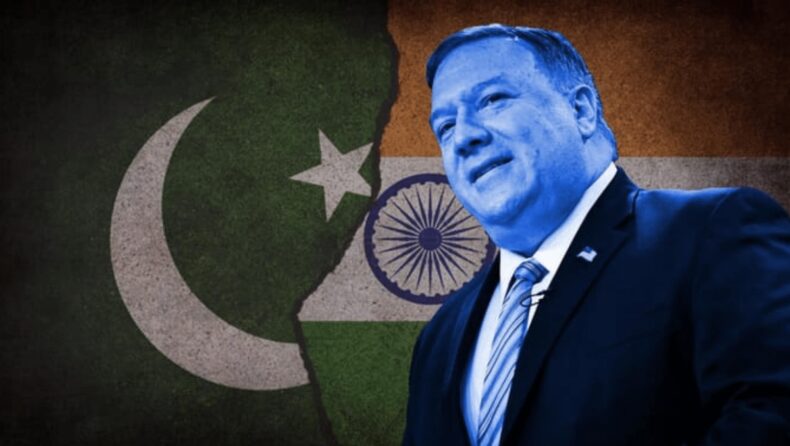In response to India’s surgical strike on Balakot in February 2019, the former US secretary of state Mike Pompeo claims that he was compelled to interact with his then Indian counterpart Sushma Swaraj. She informed him that Pakistan was preparing to launch a nuclear attack on India and that India was preparing its own retaliatory response.
Pompeo claims that this incident had occurred while he was in Hanoi, Vietnam to participate in the US-North Korea Summit on February 27–28. His team had worked relentlessly all night and was in constant contact with both New Delhi and Islamabad to avert this crisis. He has mentioned this incident in his most recent book, “Never Give an Inch: Fighting for the America I Love,” which was released on Tuesday.

“I don’t think the world is completely conscious of how dangerously vulnerable the India-Pakistan conflict was to escalate into a nuclear war in February 2019. The truth is, I don’t know precisely the answer either; I just know it was too close,” Pompeo writes in his book.
Pompeo recalled that the night he spent in Hanoi discussing and negotiating with the North Korean authorities will go down as the most memorable night of his entire life. “The tension between India and Pakistan had begun to escalate when they continued to fight and threaten each other over a historical dispute regarding the northern border of Kashmir, he says.”
He explains that the conflict sparked after 40 members of the CRPF were killed in an Islamist terrorist attack in Pulwama, Kashmir, which was presumably made possible because of Pakistan’s lenient counter terrorism policies. In retaliation to the terror assault in Pulwama, Indian fighter planes destroyed a Jaish-e-Mohammed training facility situated in Balakot, Pakistan, in February 2019. An Indian pilot was held hostage and imprisoned by Pakistan after they shot down a jet in the respective heated battle.

Pompeo’s action to deescalate the situation:
Pompeo took reference from his newly published book and elaborated, “When I heard that Pakistan was preparing to launch a nuclear attack on India and the latter was leaving no stone unturned to counter attack, I advised Sushma Swaraj to avoid taking action and believe in me to sort things out.”

“I along with then National Security Advisor John Bolton started to counter the situation which had arisen, seated in a tiny secure communication facility in the hotel. I reached out and spoke to Pakistan’s Army Chief General Qamar Javed Bajwa, with whom I had engaged numerous times before. Pakistan’s Army Chief denied all the allegations which they were accused of by India, when I conveyed to him what I knew about the intentions of Pakistan”, he narrated.
He thought the Indians were getting ready to use their nuclear weapons, as one might anticipate. The 59-year-old top former American diplomat stated in his book that it took them a few hours to persuade each side that the other was not preparing for nuclear war. “Our teams on the ground in New Delhi and Islamabad did exceptionally good work”, Pompeo said.
The MEA did not respond right away to Pompeo’s assertions. “No other country could have prevented such a terrible tragedy the way we did that night. Like in other forms of diplomacy, the individuals tackling the issue are crucial, at least initially. I had the good fortune to have excellent team members in India, none more so than Ken Juster, a very skilled ambassador. Ken adores India and its citizens. He worked tirelessly for us every day because he loves the American people, which is what matters most. David Hale, my most senior diplomat, had previously served as the US ambassador to Pakistan and was aware of the importance of our relations with India”, Pompeo added.
Only a few nations, including Pakistan and India, possess nuclear weapons. India became the first nation in the area to obtain nuclear weapons in 1974, inspiring Islamabad to do the same. Pakistan covertly developed its own nuclear capability in the 1980s, when it joined the US as an ally in the initial Afghan war against the imploding Soviet Union.
India now has between 80 and 100 nuclear warheads, whereas Pakistan has between 90 and 110, according to the Stockholm International Peace Research Institute.
While this is going on, several international think tanks predict that Islamabad’s nuclear arsenal will exceed 200 warheads within the next five years.













